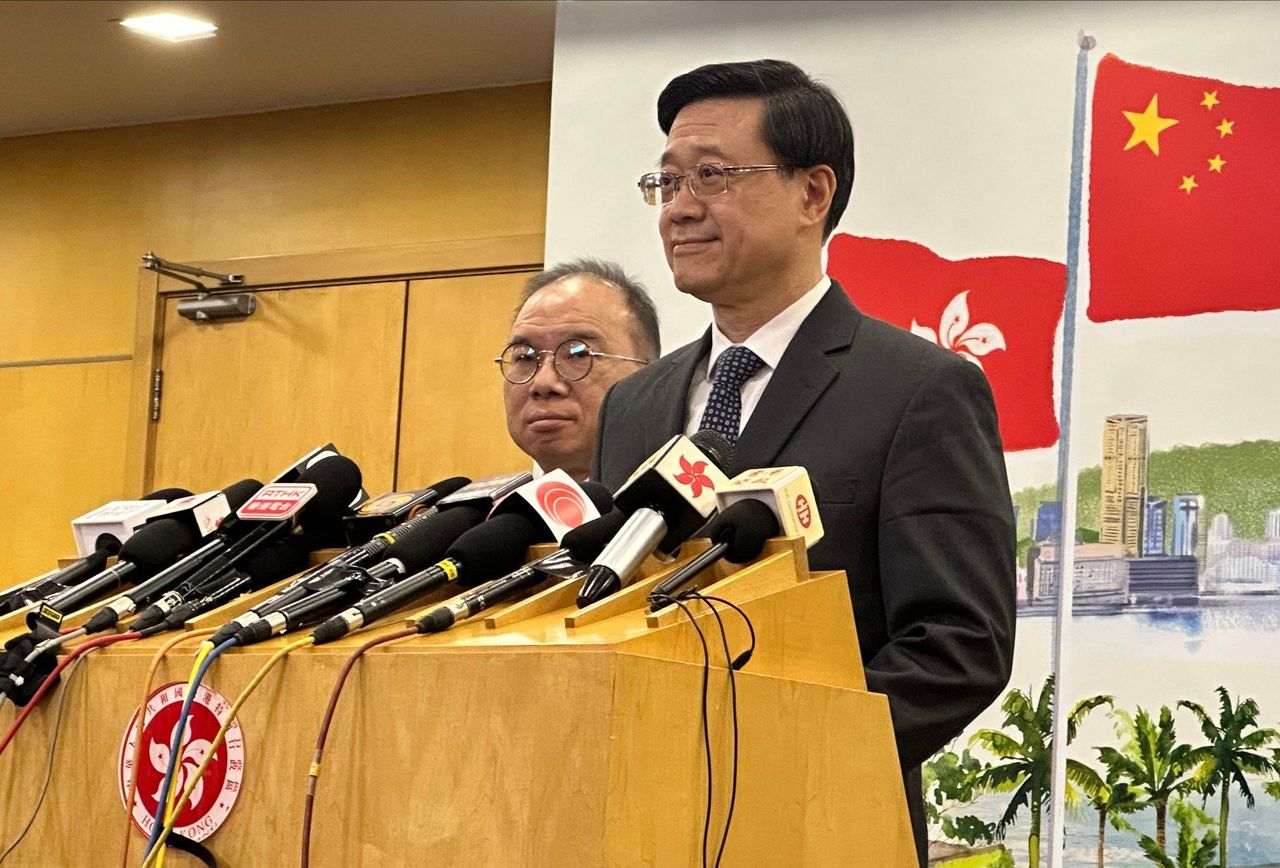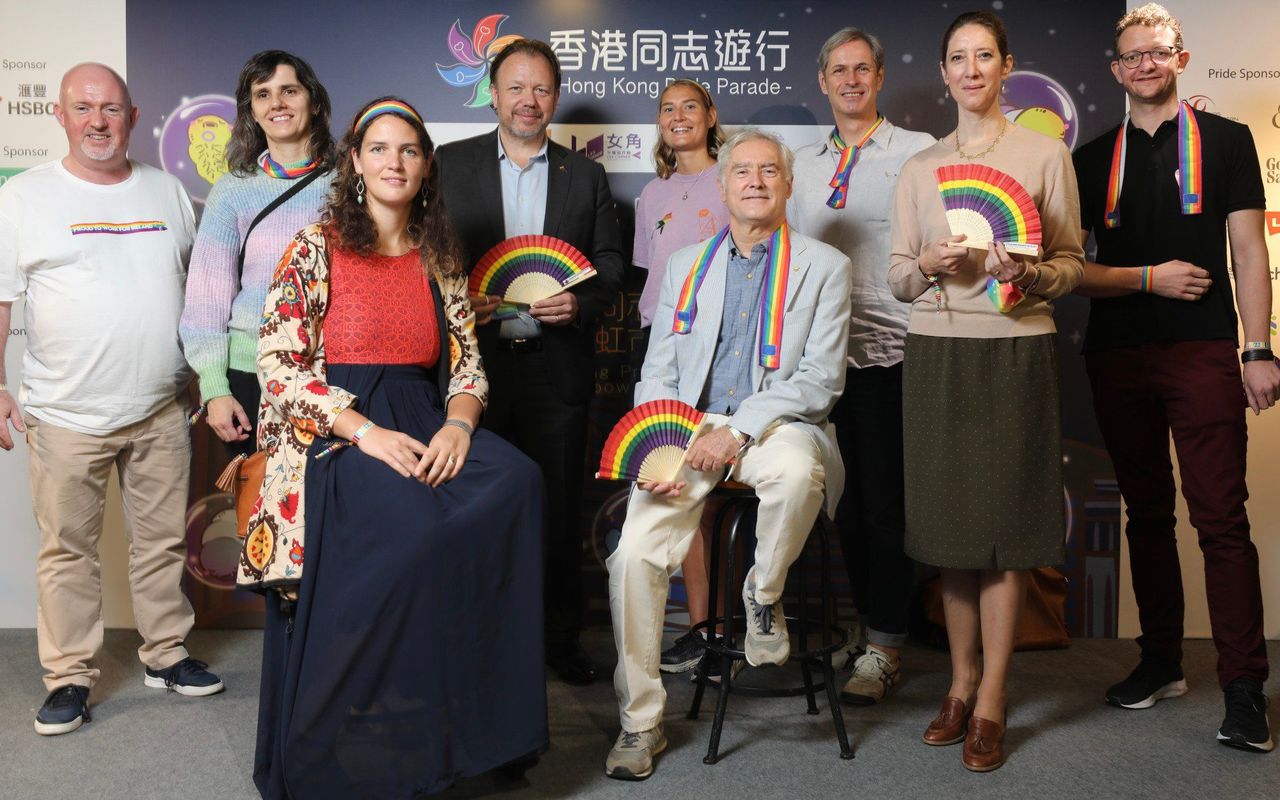Hong Kong News

Hong Kong needs to attract a global talent pool, not just more Chinese
Over the last three years, many professionals have left Hong Kong for Singapore, Britain and elsewhere. To replenish the pool, Hong Kong launched a scheme last December to attract top talent with rich work experience and solid academic qualifications from all over the world.
The scheme has proved effective in attracting Chinese applicants, whether from the mainland or elsewhere. But it will take an extra effort to find a diverse pool of talent beyond China to help return Hong Kong to being the global business hub envisioned by Chief Executive John Lee Ka-chiu.
Hong Kong’s population is ageing and this has been made worse by the departures of tens of thousands of young residents – most of those who applied for the British National (Overseas) visa scheme, for example, were aged 44 years or younger.
As Hong Kong reopens after lifting all Covid-19 restrictions, including the face mask mandate earlier this month, it is time to pull out all the stops to retain local talent, attract foreign ones, and encourage both local and foreign investments.
As of mid-February, the Top Talent Pass Scheme, designed to attract foreign top earners or recent top graduates, has received 10,810 applications. Of these, half are recent graduates from the world’s top 100 universities and a sixth comprised high earners.
But two-thirds of the successful 7,700 applicants are from the mainland and up to 95 per cent of the rest are thought to be Chinese nationals living overseas.
 Wrapping up his first official visit to ministries in Beijing, Chief
Executive John Lee Ka-chiu said on March 17 that his administration
would consider expanding its talent visa scheme to allow graduates from
more top universities in mainland China and overseas to work in Hong
Kong amid the brain drain.
Wrapping up his first official visit to ministries in Beijing, Chief
Executive John Lee Ka-chiu said on March 17 that his administration
would consider expanding its talent visa scheme to allow graduates from
more top universities in mainland China and overseas to work in Hong
Kong amid the brain drain.
As a special administrative region of China, Hong Kong naturally welcomes new talent who are Chinese citizens. They can create value for Hong Kong and the country, and are more likely to stay. But to strengthen the image of Hong Kong as a global business hub, the city needs to attract a more diverse pool of talent, especially when it has lost 20 per cent of its American population over the last two years.
Given the geopolitical tension between China and the United States, attracting American talent can be challenging. Hong Kong’s low income tax scheme is not a strong incentive because of the unique US tax law: all US citizens and residents have to pay individual income tax to the US government no matter where they live.
Tensions over the Aukus pact have also created uneasiness between Beijing and the governments of Britain and Australia, making it harder to get more British people and Australians to work in Hong Kong. But there are still many opportunities to lure talent from the European Union.
China wants to rebuild its goodwill with the EU after the fallout over the Ukraine war sparked by Beijing’s relations with Moscow.
Germany, for one, seems keen to continue investing in China. Carmaker Volkswagen, for example, said last October that it would invest up €2.4 billion (US$2.6 billion) in a joint venture with China’s Horizon Robotics, and recently announced a five-year investment plan, in part to fix its struggling business in China.
 Representatives of European Union member states pose for a photo on the
sidelines of the Hong Kong Pride Parade, as a show of support, on
November 12 last year. Hong Kong should work harder to draw European
professionals to the city.
Representatives of European Union member states pose for a photo on the
sidelines of the Hong Kong Pride Parade, as a show of support, on
November 12 last year. Hong Kong should work harder to draw European
professionals to the city.
For many German professionals, Hong Kong holds appeal as a gateway to mainland China. For them and other Europeans, the city’s low income tax is also an economic incentive.
Hong Kong can also look towards the rest of Asia. It needs to rekindle the interest of Japanese talent to come work in Hong Kong, as they did in droves in the 1980s. Hong Kong, with its seemingly omnipresent Korean restaurants and Korean TV shows, can also make South Korean talent feel at home.
Meanwhile, Indians in the US have been frustrated by the archaic H-1B visa policy, which limits the number of Indian information technology professionals who can work in the country, and many have moved to Canada. This is a golden opportunity for Hong Kong to reach out to them, especially when there is a vibrant Indian community of over 40,000 in the city.
Hong Kong is also on course to join the Regional Comprehensive Economic Partnership, and ready to welcome investment from the 15 signatories – this can be yet another conduit to attract more talent from countries such as Indonesia, Malaysia, the Philippines and Vietnam.
Even as Hong Kong looks to refresh its talent pool, it must work harder to retain local talent by addressing the housing shortage. The plan to build 30,000 units of temporary public housing over five years may work for the short term, but a long-term solution is still needed.
Finally, compared to the challenge of attracting a diverse pool of talent, ensuring that the local community embraces foreigners is much harder and more ground work is needed. Tensions between local and foreign talent are likely to emerge and must be managed carefully and proactively.
In this, Hong Kong can learn from Singapore. Since the 1990s, Singapore has implemented various immigration policies to attract foreign talent and alleviate the labour shortages caused by falling fertility rates. As a result, there has been an ongoing public debate over the value of foreign talent. Over the years, most Singaporeans have come to agree that foreign talent do create economic value for the country.
Hong Kong has the ability to attract and retain the foreign talent it needs to develop as a global business hub. But much more effort is needed to make it so.











